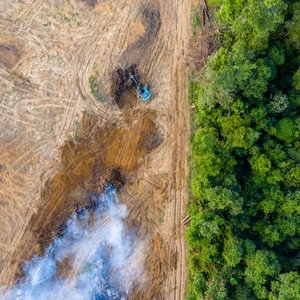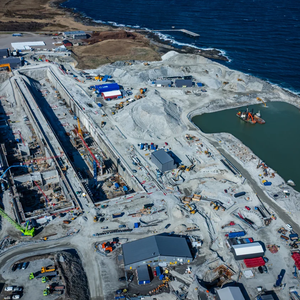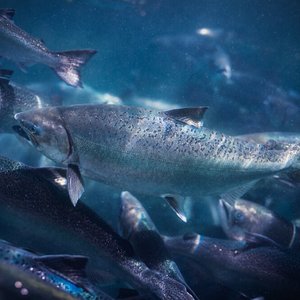The mission of the USDA Agricultural Research Service (ARS) and National Institute of Food and Agriculture (NIFA) Aquaculture Programs are to conduct high quality, relevant, fundamental, and applied aquaculture research, to improve the systems for raising domesticated aquaculture species, and to transfer technology to enhance the productivity and efficiency of U.S. producers to supply preferred quality farmed seafood and other aquatic animal products.
ARS is inviting input from diverse aquaculture stakeholders in the United States on what USDA can do better to perform research on critical challenges and achieve new opportunities in commercial aquaculture.
In the past, ARS and NIFA jointly held national stakeholder workshops every five years to discuss USDA program objectives and gather input on priority problem areas and research needs. To reduce costs in convening a national workshop as well as cost savings from travel, we have changed this year to virtual meetings to reach a larger audience while also saving tax dollars. Persons can participate in the Internet webinar sessions from the convenience of a home or office computer.
The following dates and times are scheduled for sessions pertaining to research and extension for different species or groupings, all are welcome to participate in any or all of the sessions:
- July 30th, 2013, 11am –1pm (EST): Atlantic salmon
- July 30th, 2013, 3 pm – 5 pm (EST): hybrid striped bass, bass, sunfish and tilapia
- July 31st, 2013, 11am –1pm (EST): trout and charr
- July 31st, 2013, 3 pm – 5 pm (EST): marine species pompano, barramundi, cobia, flounder, redfish
Connect to the Web Conference.
TO CONNECT WITH YOUR *TELEPHONE ONLY* (no computer):
1. Choose one of the following numbers to dial:
If you are calling from an office location with on-site number(s) (listed below), try this number first. If you do not have on-site access, or you are not a member of the host\'s company/organization, use one of the other numbers shown.
* Toll-Free Number (in USA): 888-858-2144.
* A number in your country or in a country close to you (may be toll free):
2. When prompted, enter the Meeting Access Code: 1434136#
To prepare in advance for the conference (for all devices): .
You can also provide input directly by email by sending to Jeff Silverstein or Kathryn Vickery. The deadline for submitting comments is August 14th, 2013.
A few questions to think about in preparation for the web conference, or possibly to help guide written input:
•What is your business?
The kind of activity you do influences the kinds of solutions you need. Knowing the nature of your business will help us work toward producing the right kinds of information and products.
Examples of responses are: Aquaculture, business serving the aquacultural community, feed preparation, food industry, imports and exports, fish processing, research for the government, extension education, research at a university, teaching, or veterinary services.
•What, in your view, is the largest constraint to growth and expansion of this sector of aquaculture?
Examples of responses are: Lack of markets, lack of value added products, lack of research on particular topics, regulatory uncertainty.
•What do you see as the greatest short-term, 1-4 years, research and extension needs?
Examples of responses are: Feed costs-need to identify alternative ingredients to reduce reliance on fish meal, need alternatives to live feed, broodstock diet development, demonstrations, unavailability of effective drugs and vaccines, lack of domesticated broodstock and genetically improved stocks, specific disease issues (e.g. bacterial coldwater disease, columnaris, ESC, E. tarda), improved production system technology, off-flavors, educational programs and products, need for improved waste treatment, mechanization, control of reproduction, larval development
•Over the longer term, what do you see as the greatest research and extension needs over the next 5-10 years?
•Is problem or need local, regional or national (industry-wide)?
•What is most effective communication strategy to reach and inform farmers of new solutions to problems or better technologies?
•How can aquaculture community speedup farm adoption of relevant research findings?







